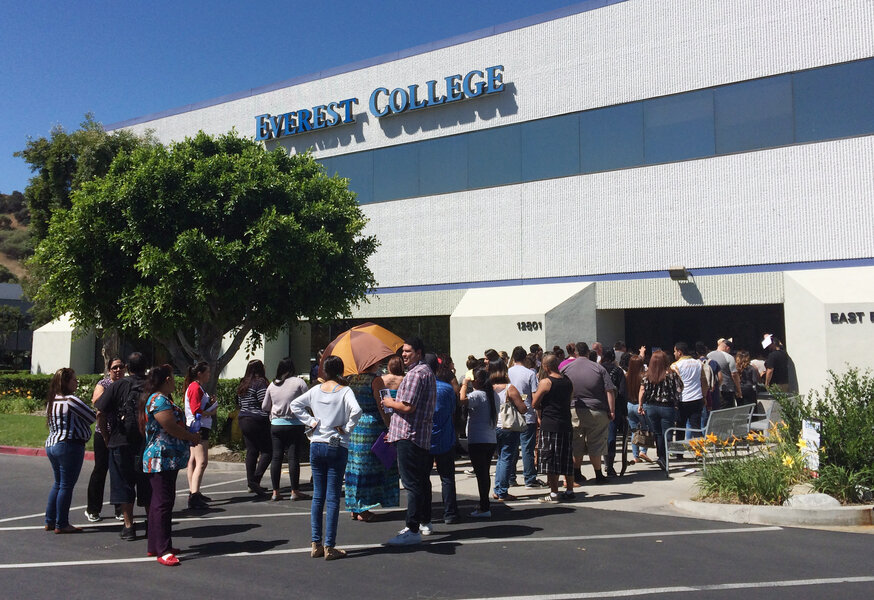Government to forgive Corinthian Colleges student loans
The US Department of Education says it will forgive the federal loans of tens of thousands of students who attended the now-bankrupt Corinthian Colleges.
The department made the announcement of debt relief for those whose schools have closed down on Monday.
While the move is focused on Corinthian, the Department of Education is planning to develop a process to ensure any student who has been defrauded by his or her college “receive every penny of the debt relief they are entitled to.”
“I am committed to ensuring that every student has access to an education that will put them on solid footing for a career, and I will hold schools accountable for practices that undercut their students and taxpayers,” said US Secretary of Education Arne Duncan.
The debt relief will ultimately hit taxpayers in the wallet. According to The New York Times, if all 350,000 Corinthian students who were enrolled over the past five years apply for debt relief, it could cost up to $3.5 billion.
"Students have been hurt, but the department is establishing a precedent that puts taxpayers on the hook for what a college may have done," Sen. Lamar Alexander, who chairs the Senate Education Committee told The Associated Press. However officials say that it’s unlikely that every federal loan will be granted a relief.
Before declaring bankruptcy, Corinthian was one of the largest for-profit education companies in North America. It operated more than 100 campuses in the United States and Canada under names Everest, Heald, and WyoTech.
According to investigators, Corinthian schools charged high fees, lied about job prospects for its graduates and, in some cases, encouraged students to get more federal aid by lying about their circumstances.
Last June most of Corinthian’s campuses were sold off. Its 30 remaining colleges closed on April 27, affecting 16,000 students.
In February 2015, the federal Consumer Financial Protection Bureau and the US Department of Education announced that students who were harmed by the chain's high-price student loan program, will be getting $480 million worth of debt relief.
CNN reports that 40 million Americans have at least one outstanding student loan. In total, the US student debt load is over $1.2 trillion.







